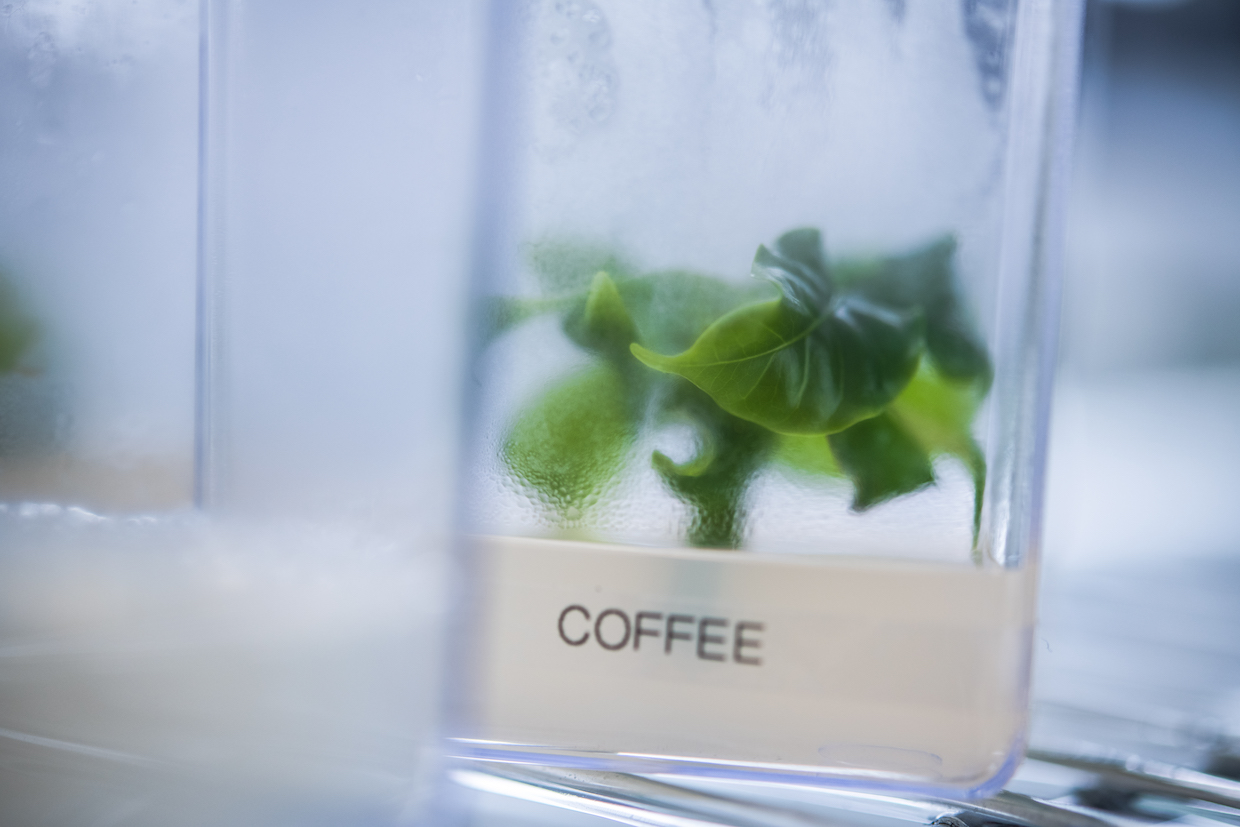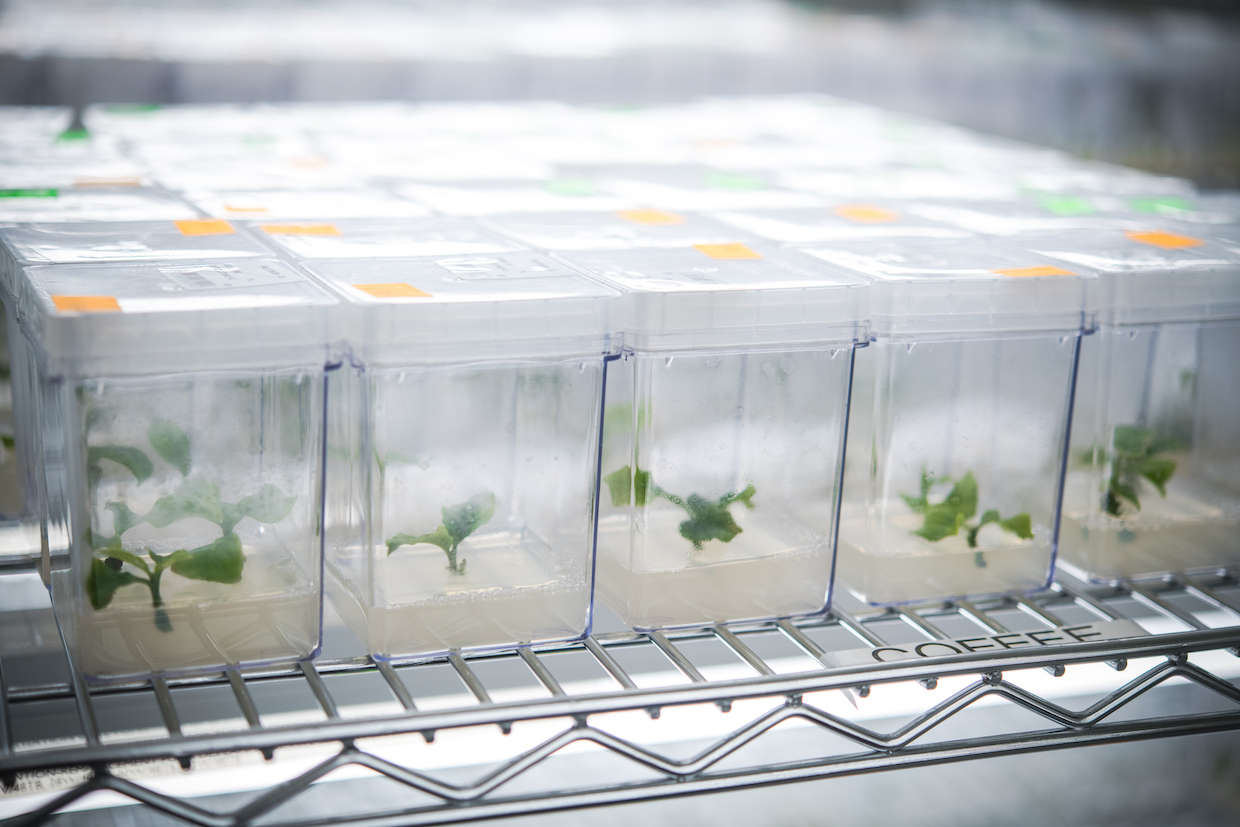While botanists, agronomists and other scientists in myriad fields have been hard at work here on earth trying to unlock the secrets to developing higher-quality, higher-yielding and more resilient and robust coffee plants, coffee in space remains largely uncharted territory.
Colorado-based firm Front Range Biosciences is helping to lead a legitimate charge into the great unknown, packing up plant tissue culture from coffee and hemp to send them aboard a March 2020 SpaceX cargo flight.
FRB is partnering with the private firm SpaceCells USA Inc. and the University of Colorado-based BioServe Space Technologies to see how the cells from the 480 plant cultures respond to limited- and zero-gravity environments aboard the International Space Station (ISS).
“This is one of the first times anyone is researching the effects of microgravity and spaceflight on hemp and coffee cell cultures,” said Dr. Jonathan Vaught, Co-Founder and CEO of Front Range Biosciences. “There is science to support the theory that plants in space experience mutations. This is an opportunity to see whether those mutations hold up once brought back to earth and if there are new commercial applications.”
Incidentally, this is not the first time people have gazed towards the cold expanse of outer space in search of commercial coffee applications. Earlier this year, a Dubai startup called Space Roasters made headlines with a ridiculous idea to commercialize coffee that was roasted by heat caused from re-entry into the atmosphere. This, of course, never happened, and the company’s original domain is now occupied by someone rightly making fun of the bogus venture. In October of 2018, the Brooklyn, New York, roasting company Superlost raised $424 on Kickstarter with a promise to send five pounds of coffee via a balloon into space before the coffee would be delivered to backers. That, of course, also never happened.
Leaning less on gimmickry, FRB already has a track record in the coffee industry through its partnership with Frinj Coffee, which is working to create plants that are suitable for commercial growth in California.
The goal here is not to someday grow coffee in space, but to leverage humanity’s relatively newfound access to space to help conduct research towards terrestrial goals. In coffee, that may mean more resilient plants as climates change throughout the coffee-growing world, the company suggested.
“Because of rising temperatures due to climate change, there are many environments on earth that are unable to support crops that once thrived in those regions,” FRB said in its announcement. “Learning how plants respond to novel environments — such as space — can help companies like Front Range Biosciences breed crops to thrive in locations where they have not performed successfully in the past.”
Nick Brown
Nick Brown is the editor of Daily Coffee News by Roast Magazine.
Comment
1 Comment
Comments are closed.








quote: ““Because of rising temperatures due to climate change,”
maybe some temps are rising in some places, but in just as man others, temps are falling. Average world-wide surface temperature data have not changed significanly for nearly a century. At most, one half degree Centigrade/Celsius.
Don’t forget we are toward the turn in another eleven year solar activity cycle and this alone is sufficient explanation for much of the abnormal weather observed in many coffee producing areas. Things will, as they have for centuries, settle down again to more stable weather.
The research and experinemtation to work toward coffee (and other) plants that can prosper in areas formerly considered unsuitable for coffee production is a good thing… many crops are now grown on a regular basis in places they formerly could not be cultivated. COffee can and perhaps should be one of them. But to do this in a kneeejerk reaction to the constant meme of “cimate change” as a global phoenomenon is at best amusing.. the constant drip of “climate change we gotta DO something” is getting old. Anyone else been around long enough to remember the “climate change we’ll be in an ice age within twenty five years and the West Coast will be frozen solid with sea water levels fifty feet lower than they are now” meme? That was in the late 1960’s, and I knew some “scientists” that were “certain” this was coming and we’d better DO SOMETHING before its too late. I also knew they were dead wrong. And they were. Background noise…… a funny thing. Ignore it. It has no significance.